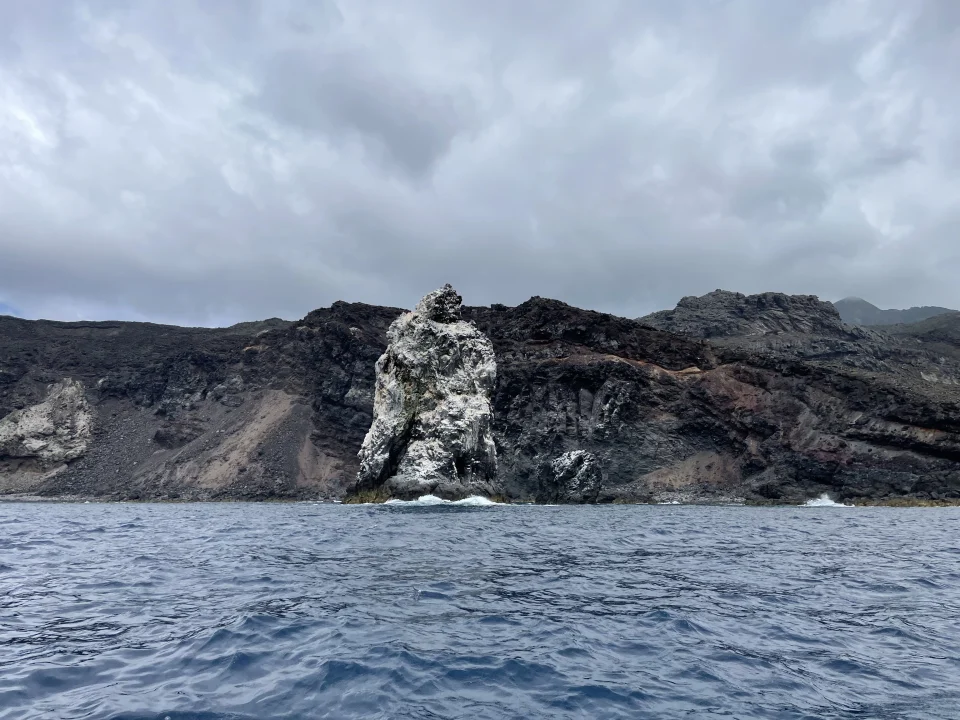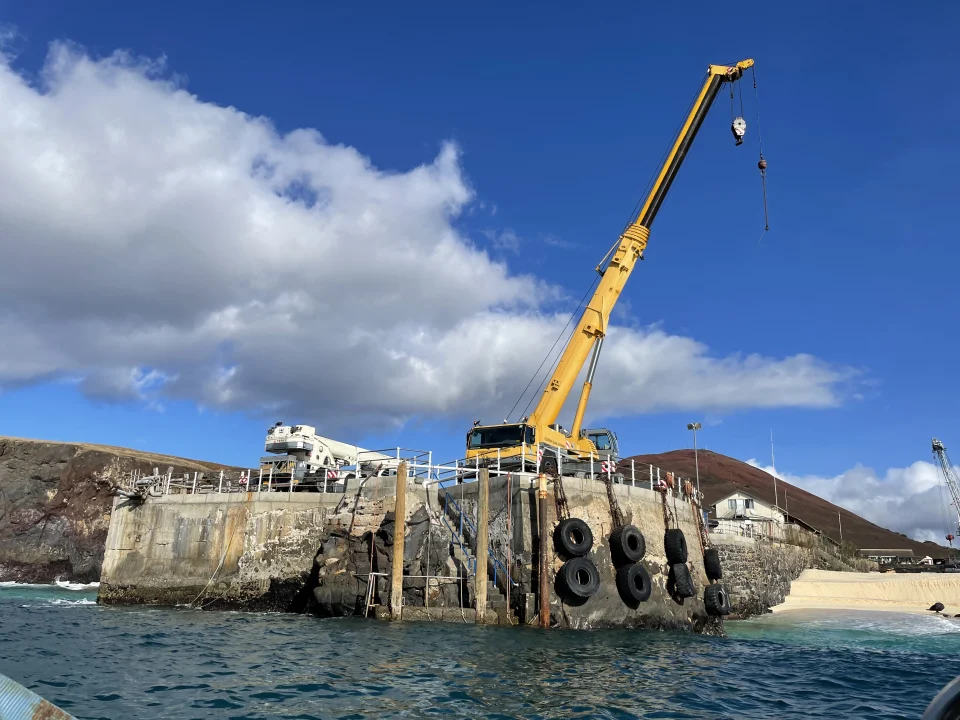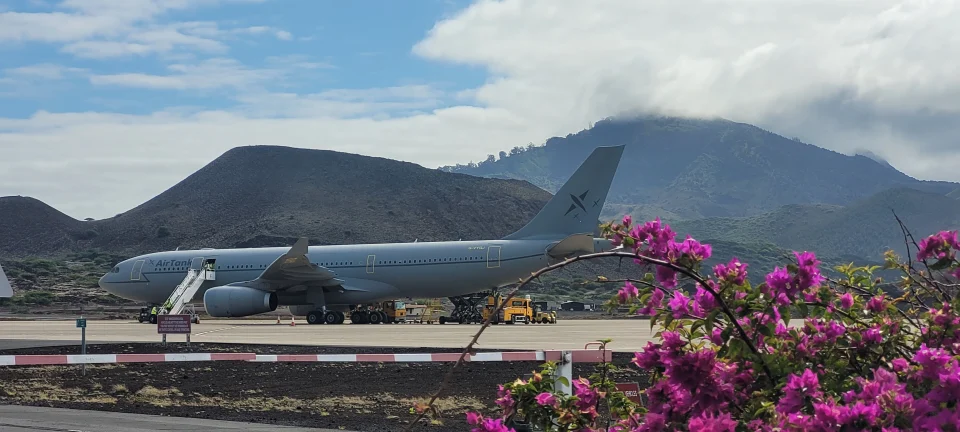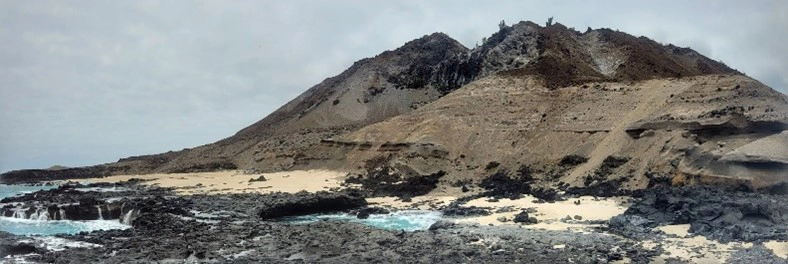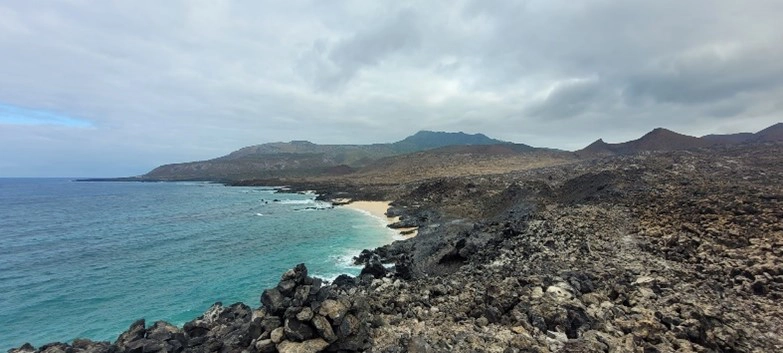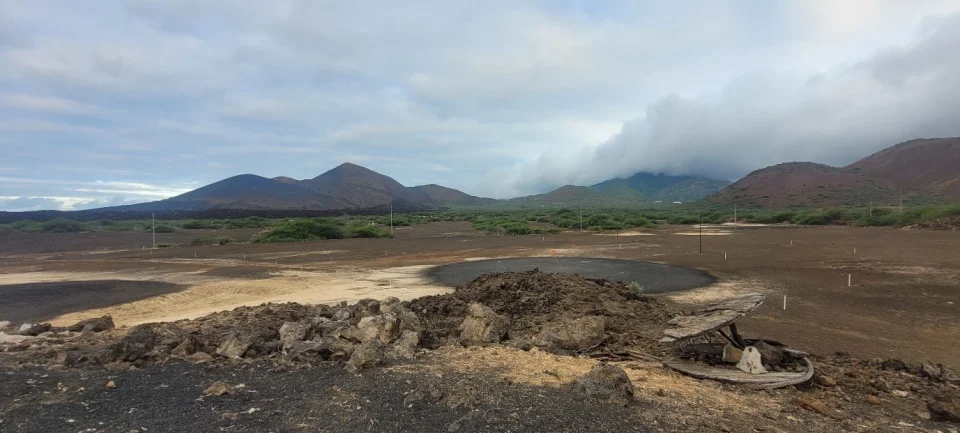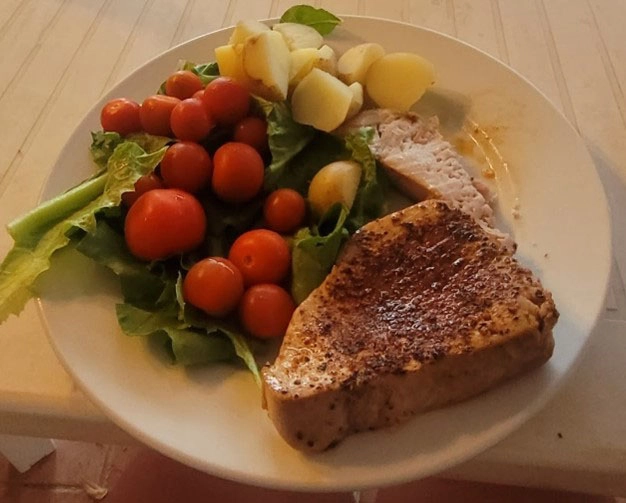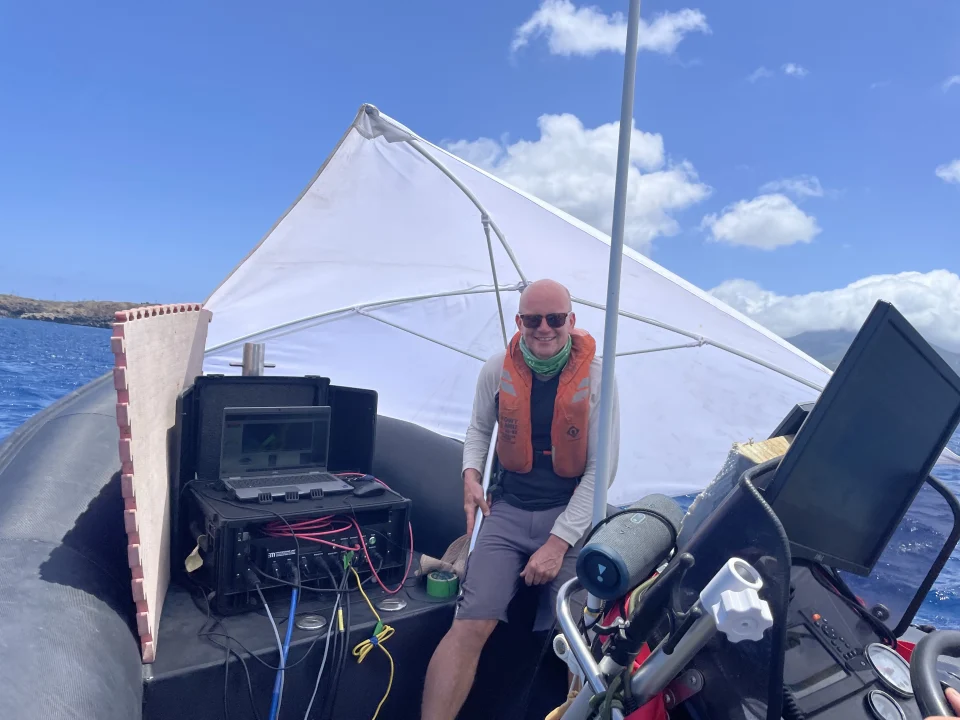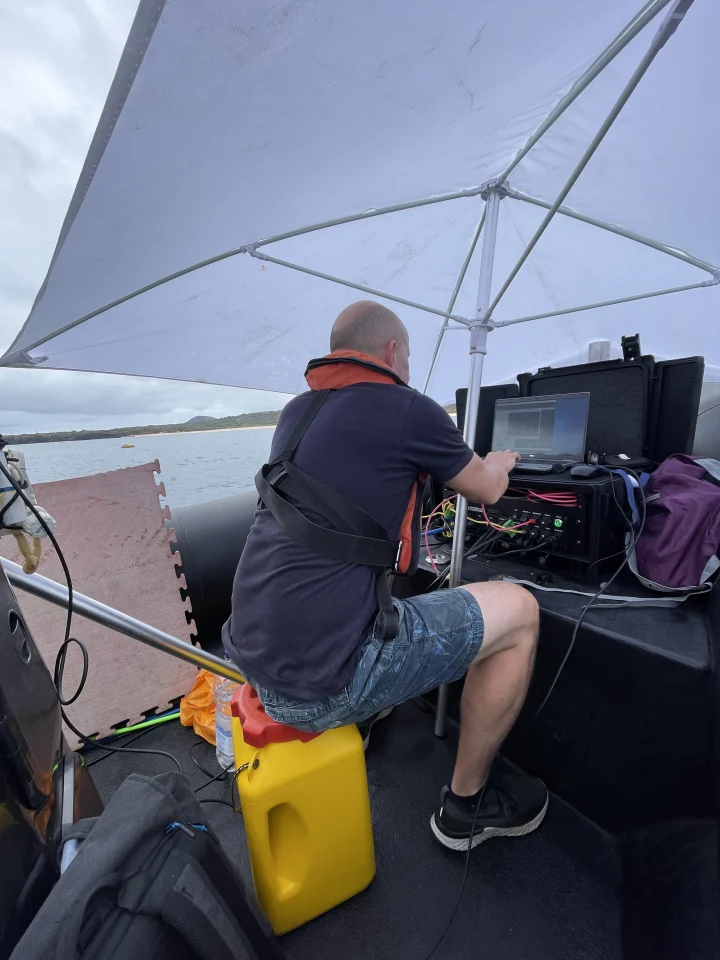In photos: marine surveying a remote volcanic island
A photo blog by members of the BGS Marine Survey team, who recently completed marine surveys around Ascension Island in the South Atlantic Ocean.
14/12/2023 By BGS Press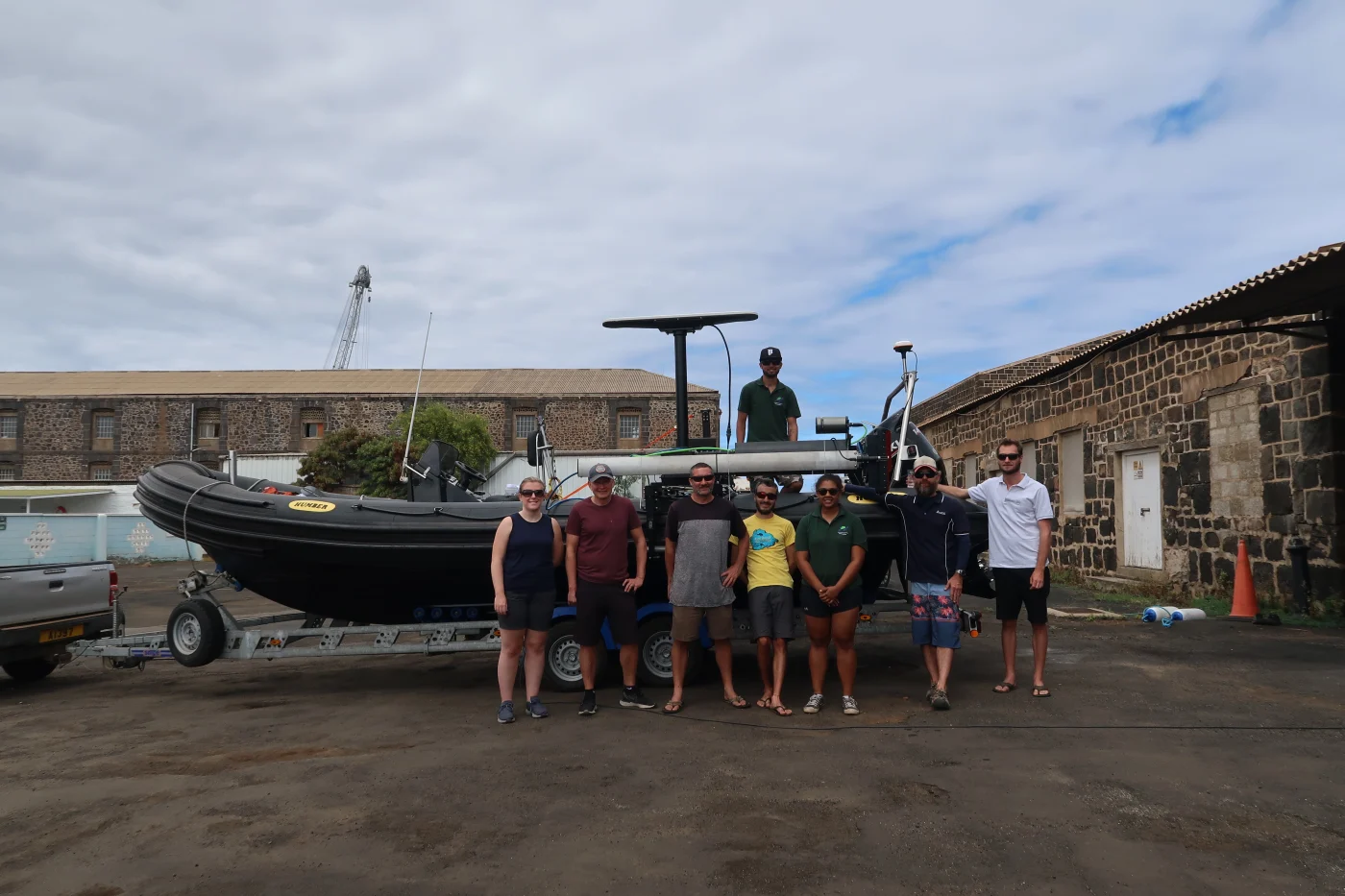
I’m Catriona Macdonald from the BGS Marine Survey team. My colleague Rhys Cooper and I recently returned from fieldwork on Ascension Island, a remote volcanic island in the South Atlantic Ocean. The reason for our visit was to complete a marine survey of the nearshore waters within the Ascension Island Marine Protected Area (MPA), one of the largest MPAs in the world. The survey is part of the first stage of a project funded by the UK Government through Darwin Plus to map the seabed and nearshore habitats within the MPA.
Working with the Ascension Island Government (AIG) marine conservation team, we acquired new, high-resolution bathymetry data in specific nearshore areas around the island as part of an integrated programme of marine surveys. The data will be used to produce the first geomorphology, substrate and habitat maps of the MPA. These will help to inform better management and monitoring of the marine environment, as well as enhancing our geological understanding of the sea floor around Ascension.
Completing a marine survey at the best of times can be extremely difficult, but, given the remoteness of Ascension Island, this project presented its own unique set of challenges. To get to Ascension, we had to travel down from Edinburgh to RAF Brize Norton, Oxfordshire, and fly overnight on the ‘South Atlantic airbridge’, which stops at Ascension for refuelling before continuing to the Falkland Islands. Thankfully, the flight now goes directly to Ascension: major repair work on the island’s runway led to the suspension of airbridge flights in 2017, meaning that the flights were diverted via Cape Verde. The runway opened again in 2022.
Chief surveyor Rhys considered several boat options before settling on a RIB-mounted system to complete the survey. The solution was ideal for surveying in shallow, nearshore waters, but it meant that the working conditions were challenging due to the size of the boat, the amount of survey equipment on board and the limited cover from the elements.


Rhys Cooper discusses how the project is mapping some previously uncharted areas around the island.
The food supply on Ascension is limited and depends on supplies that are flown to the island. However, we made good use of the fresh produce from the local hydroponics laboratory, which opened in 2016 and sells leafy crops, tomatoes and potatoes in the local shops. On our last weekend, our hosts from AIG took fishing rods out on the boat and at the end of the day we had a go at fishing. I was lucky enough to catch a yellowfin tuna, which meant we ate very well over the last few days!
Ascension’s amazing landscape and wildlife made the trip more than worthwhile. Over the course of our trip, we completed many of the hiking trails around the island. We even managed to source some (very old) golf clubs to have a go at the infamous One Boat Golf Club, which is sometimes playfully referred to as the ‘world’s worst golf course’. The team will return to the island in January 2024 to collect seabed samples and participate in outreach activities for local government and community groups living on the island.
This project is funded by the UK Government through Darwin Plus.

Relative topics
Related news
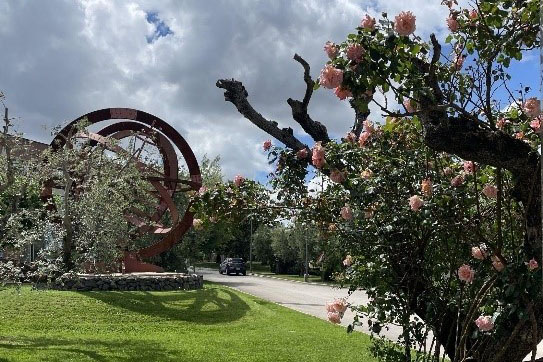
AI and Earth observation: BGS visits the European Space Agency
02/07/2025
The newest artificial intelligence for earth science: how ESA and NASA are using AI to understand our planet.
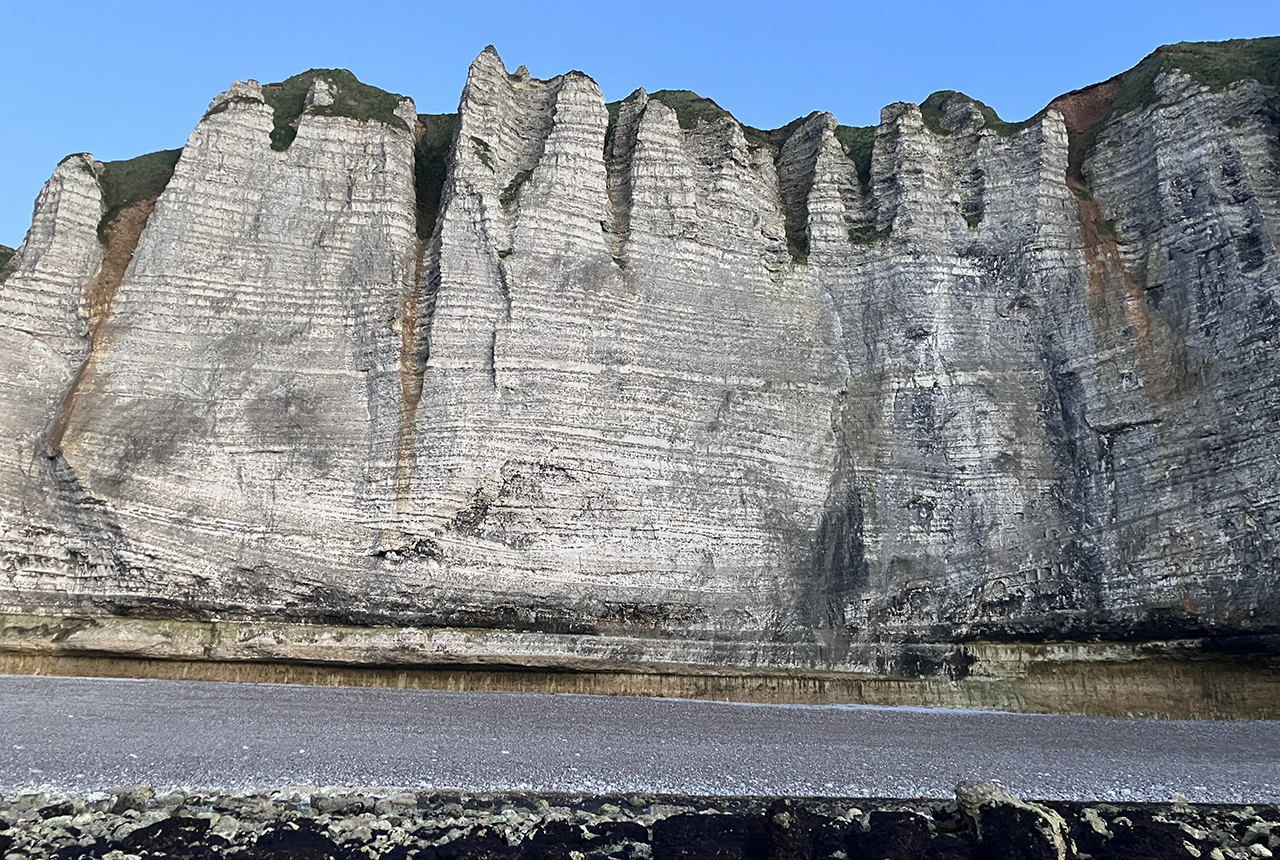
Geology sans frontières
24/04/2025
Geology doesn’t stop at international borders, so BGS is working with neighbouring geological surveys and research institutes to solve common problems with the geology they share.
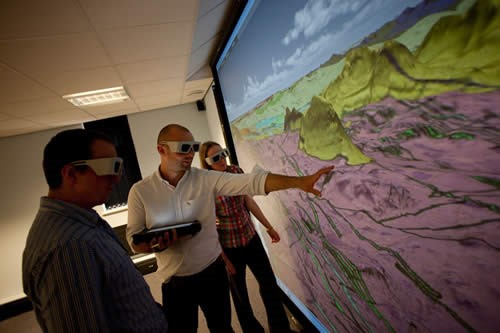
Celebrating 20 years of virtual reality innovation at BGS
08/04/2025
Twenty years after its installation, BGS Visualisation Systems lead Bruce Napier reflects on our cutting-edge virtual reality suite and looks forward to new possibilities.
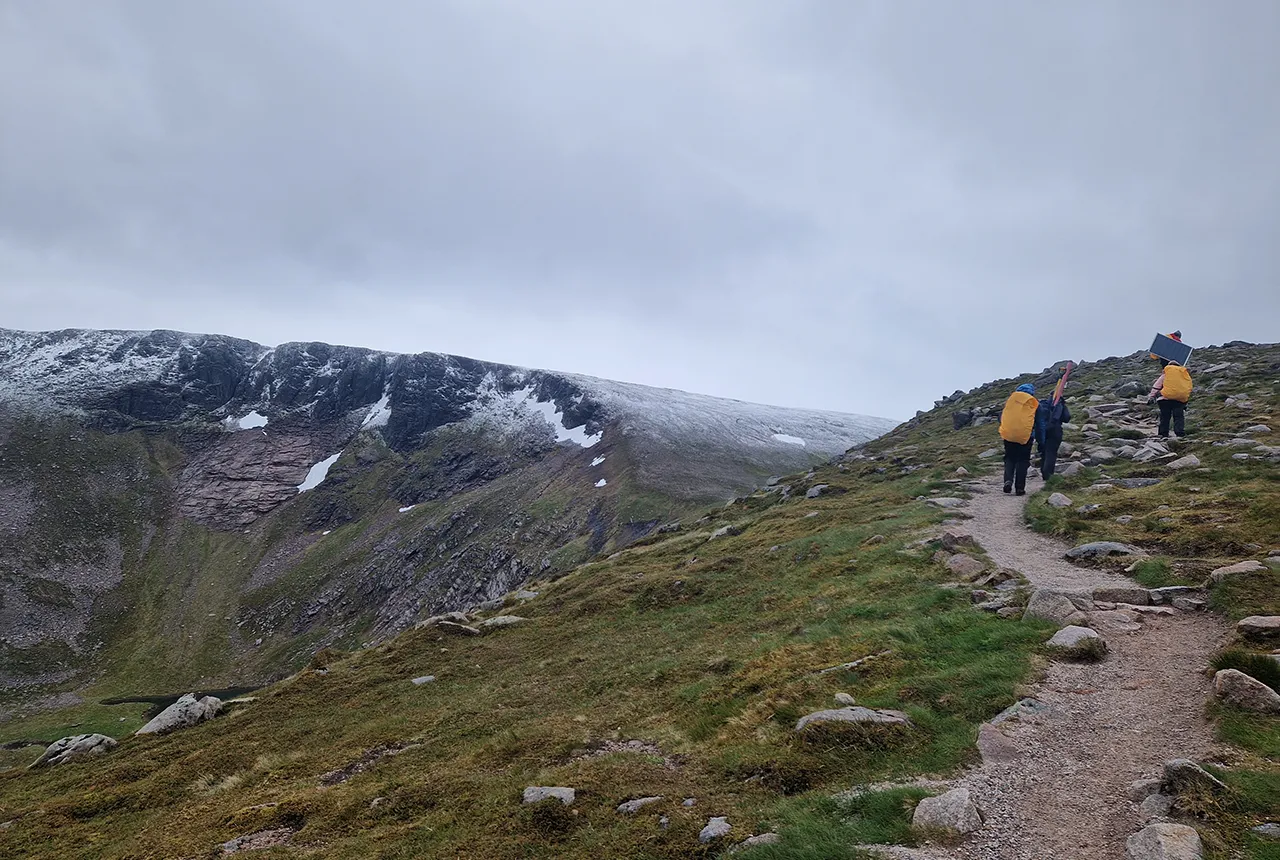
Exploring Scotland’s hidden energy potential with geology and geophysics: fieldwork in the Cairngorms
31/03/2025
BUFI student Innes Campbell discusses his research on Scotland’s radiothermal granites and how a fieldtrip with BGS helped further explore the subject.
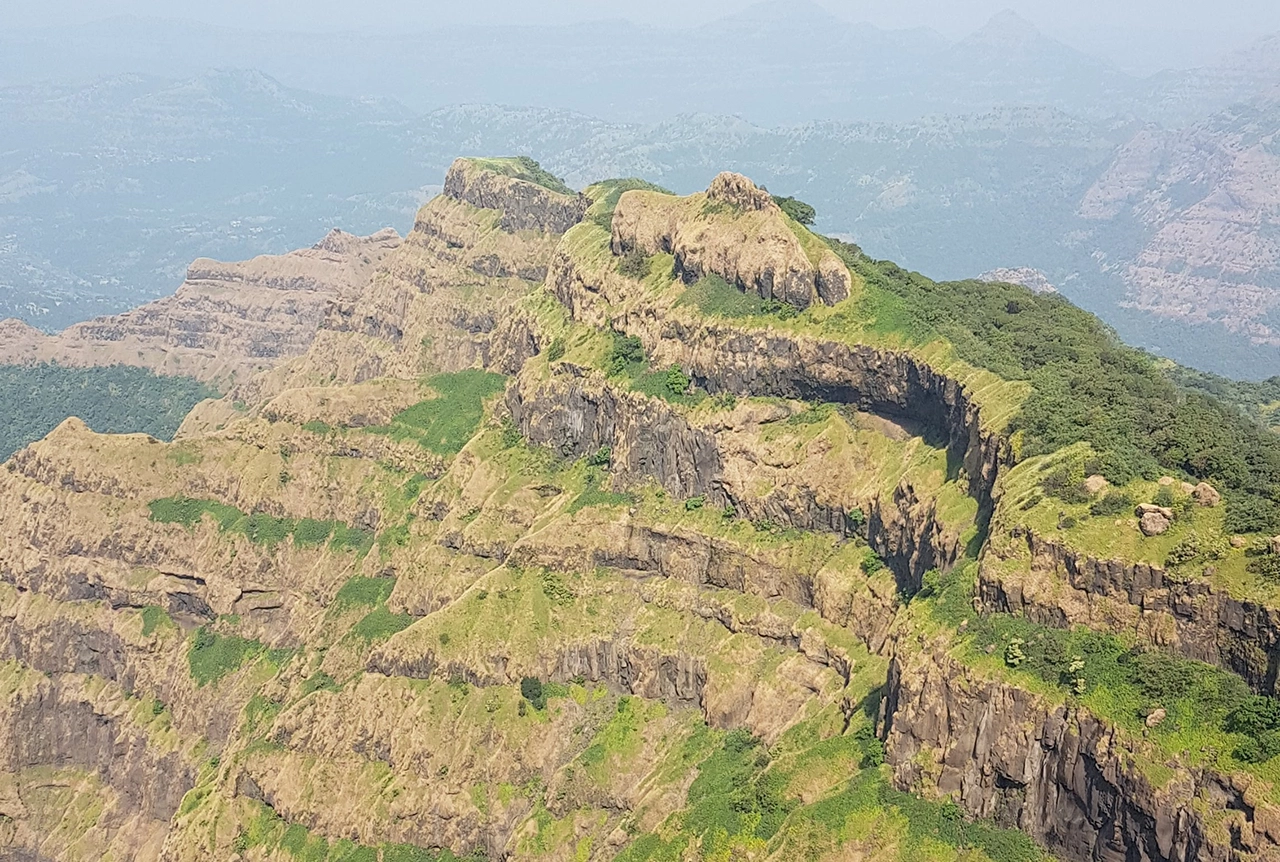
Could underground disposal of carbon dioxide help to reduce India’s emissions?
28/01/2025
BGS geologists have partnered with research institutes in India to explore the potential for carbon capture and storage, with an emphasis on storage.
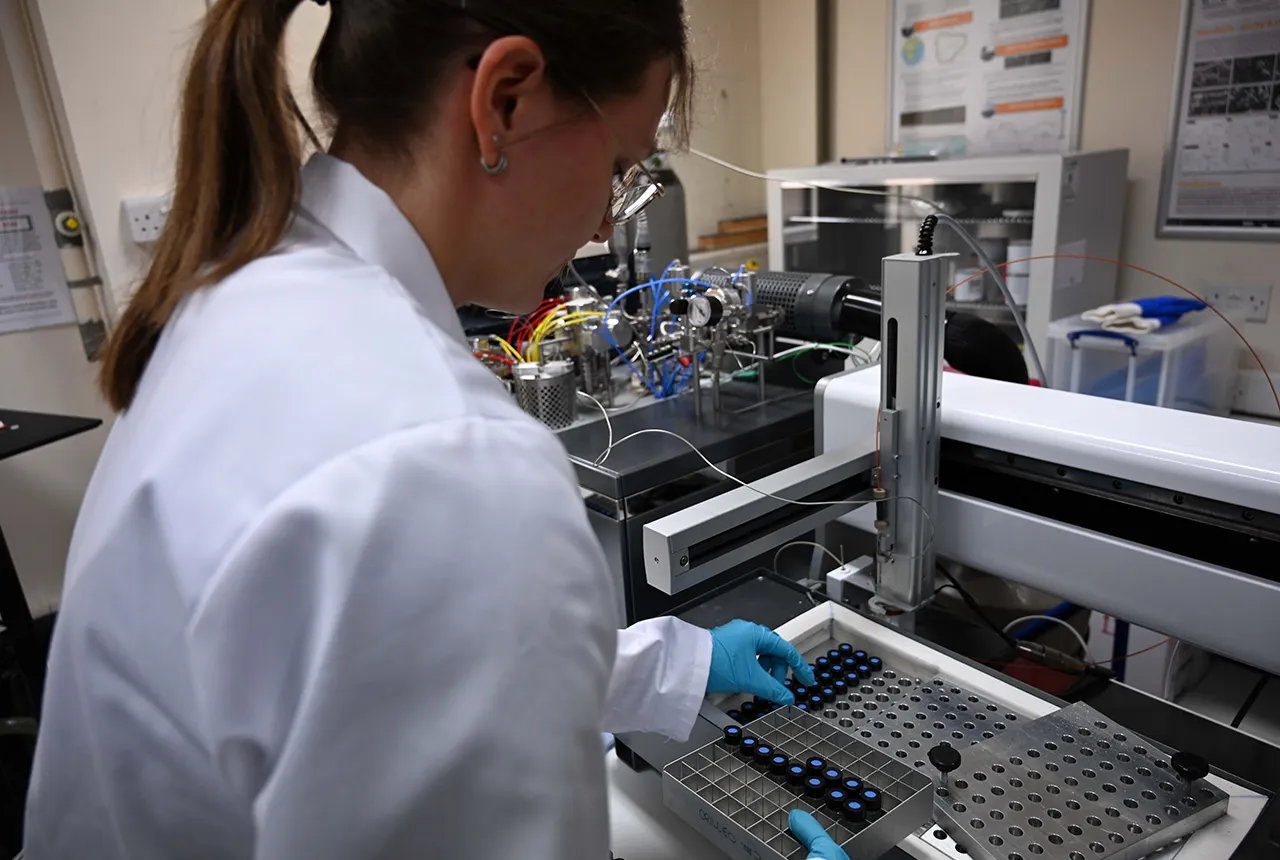
Carbon and oxygen isotope analysis of carbonates and the development of new reference materials
18/12/2024
Dr Charlotte Hipkiss and Kotryna Savickaite explore the importance of standard analysis when testing carbon and oxygen samples.
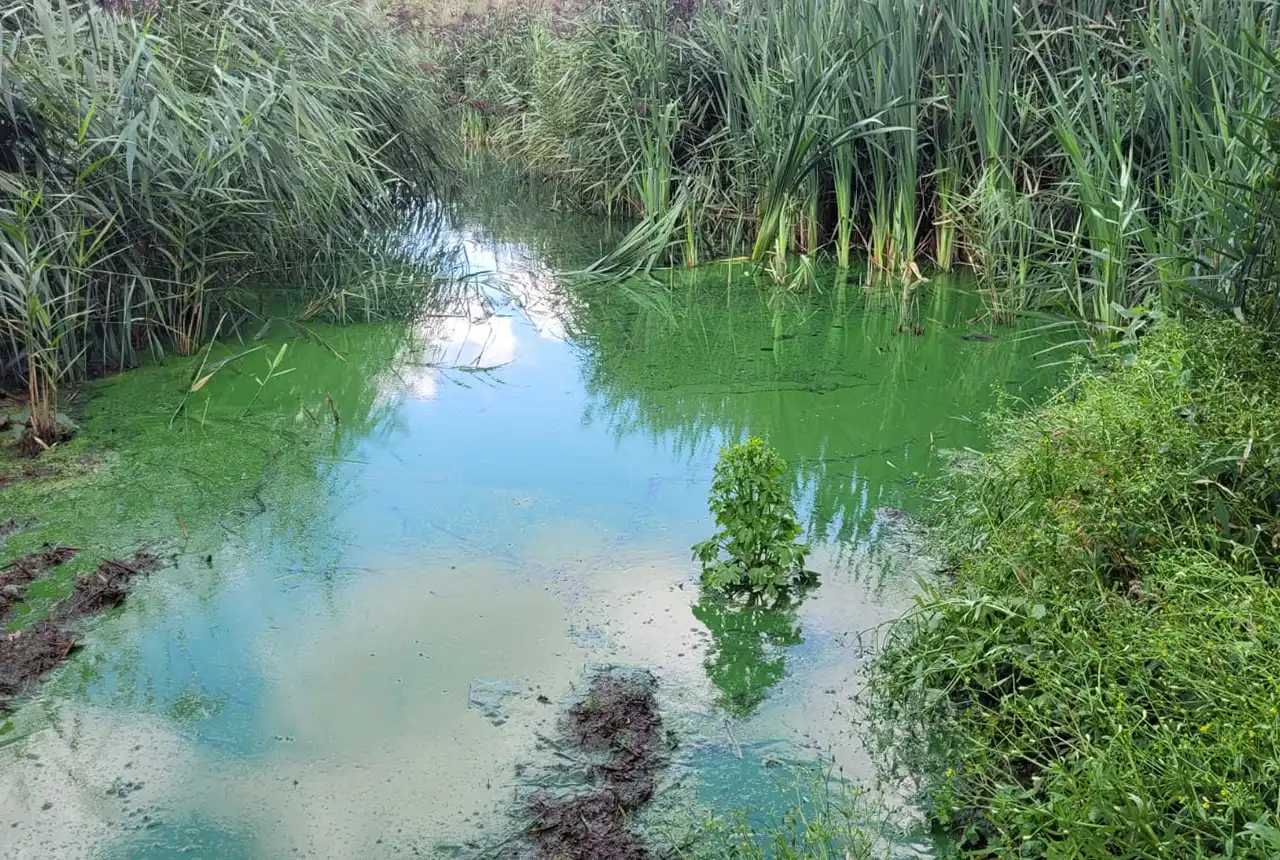
Studying oxygen isotopes in sediments from Rutland Water Nature Reserve
20/11/2024
Chris Bengt visited Rutland Water as part of a project to determine human impact and environmental change in lake sediments.
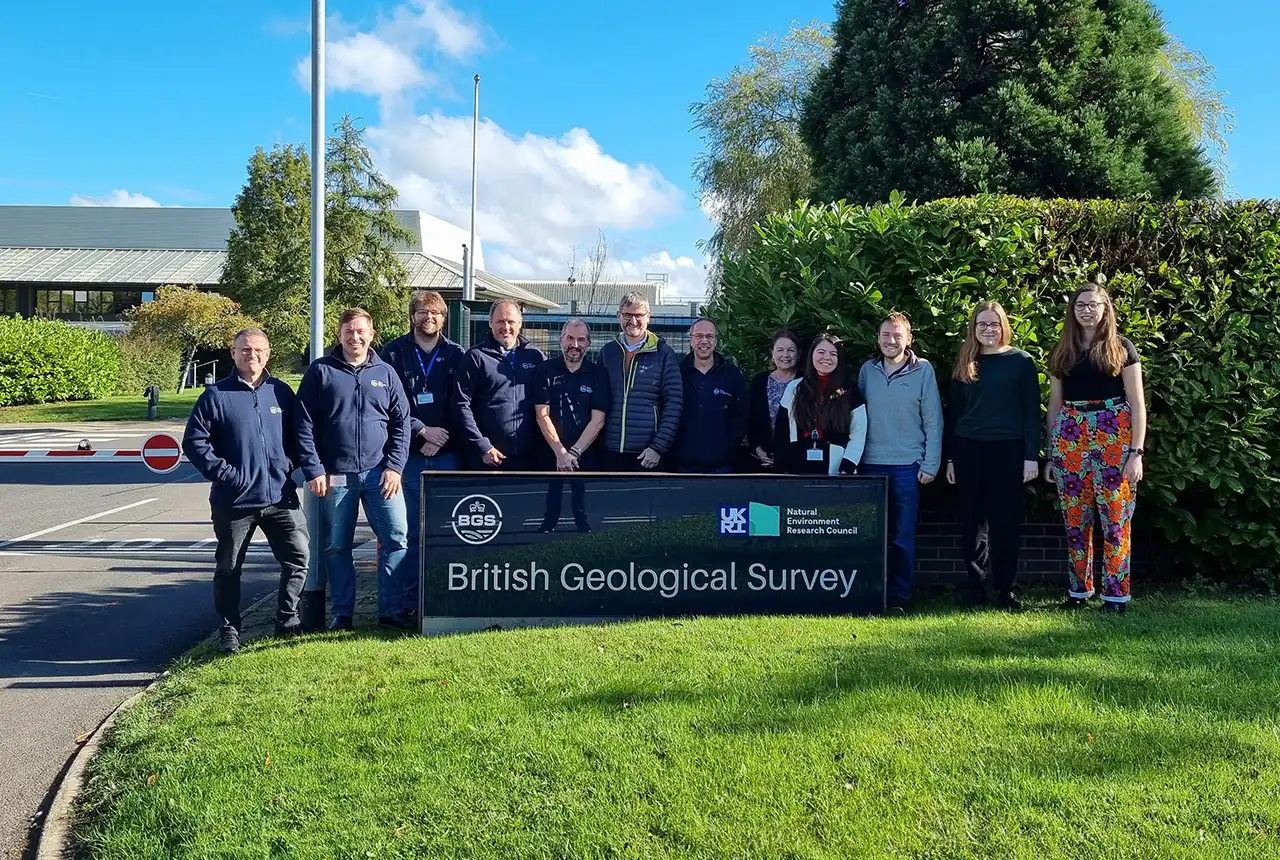
Celebrating 25 years of technical excellence at the BGS Inorganic Geochemistry Facility
08/11/2024
The ISO/IEC 17025 accreditation is evidence of technical excellence and reliability, and a mark of quality assurance.
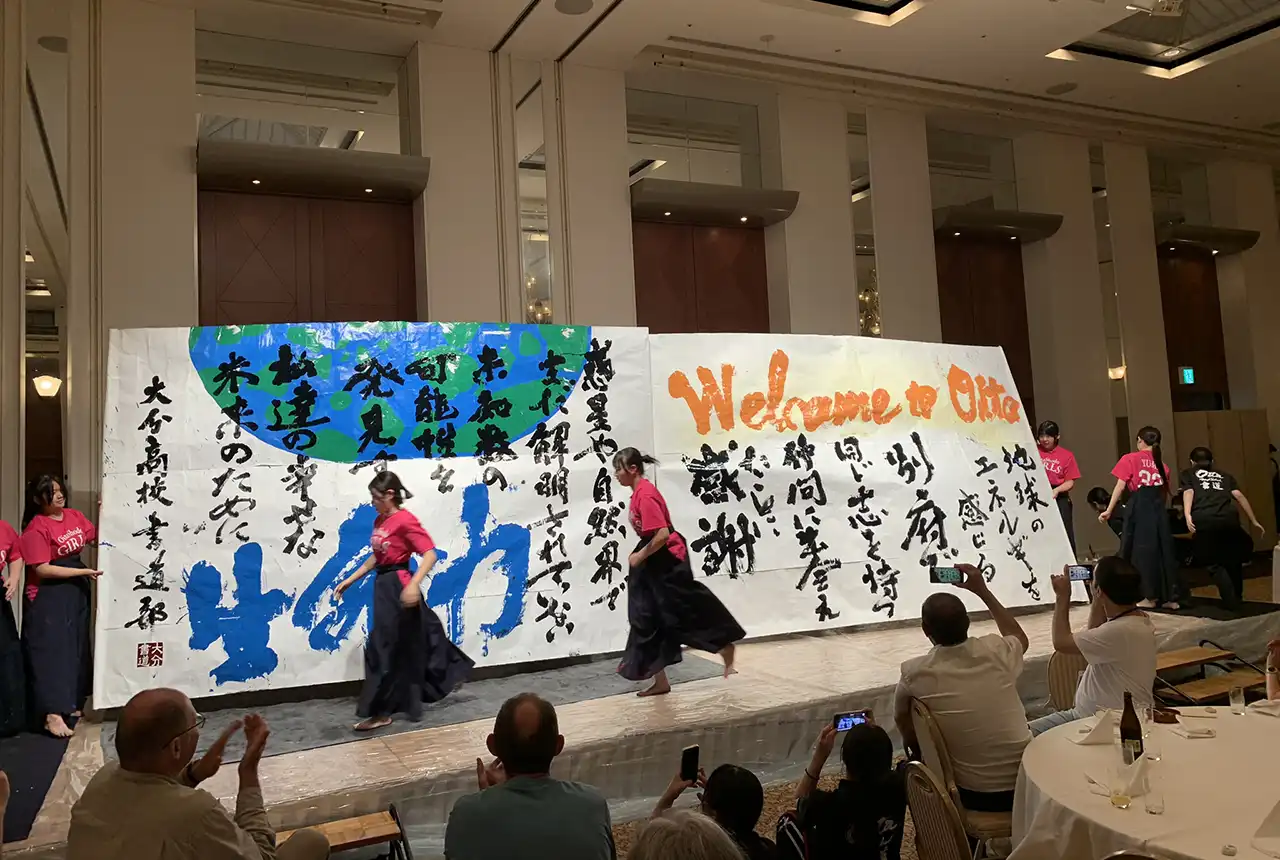
Electromagnetic geophysics in Japan: a conference experience
23/10/2024
Juliane Huebert took in the fascinating sights of Beppu, Japan, while at a geophysics conference that uses electromagnetic fields to look deep into the Earth and beyond.
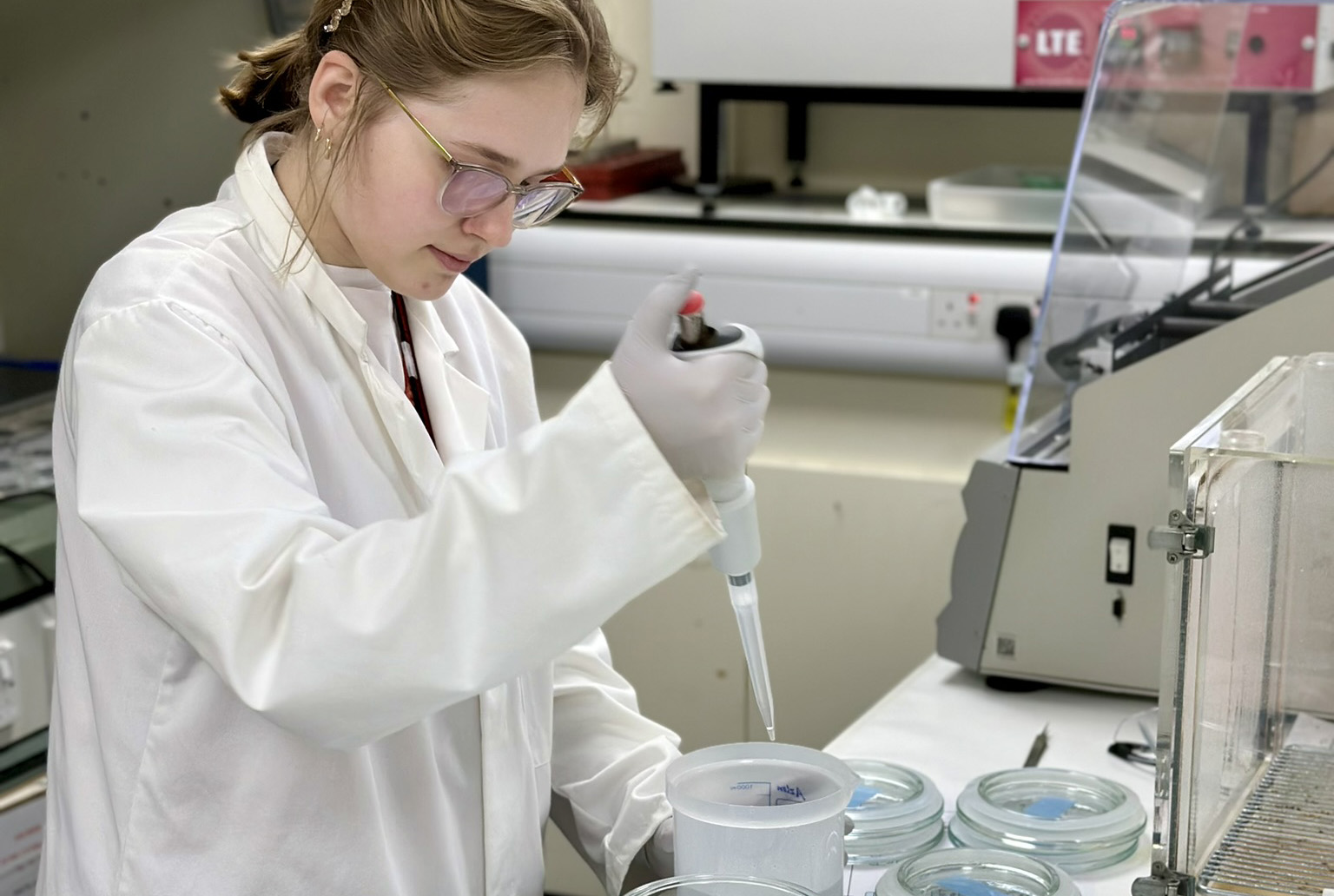
Exploring the role of stable isotope geochemistry in nuclear forensics
09/10/2024
Paulina Baranowska introduces her PhD research investigating the use of oxygen isotopes as a nuclear forensic signature.
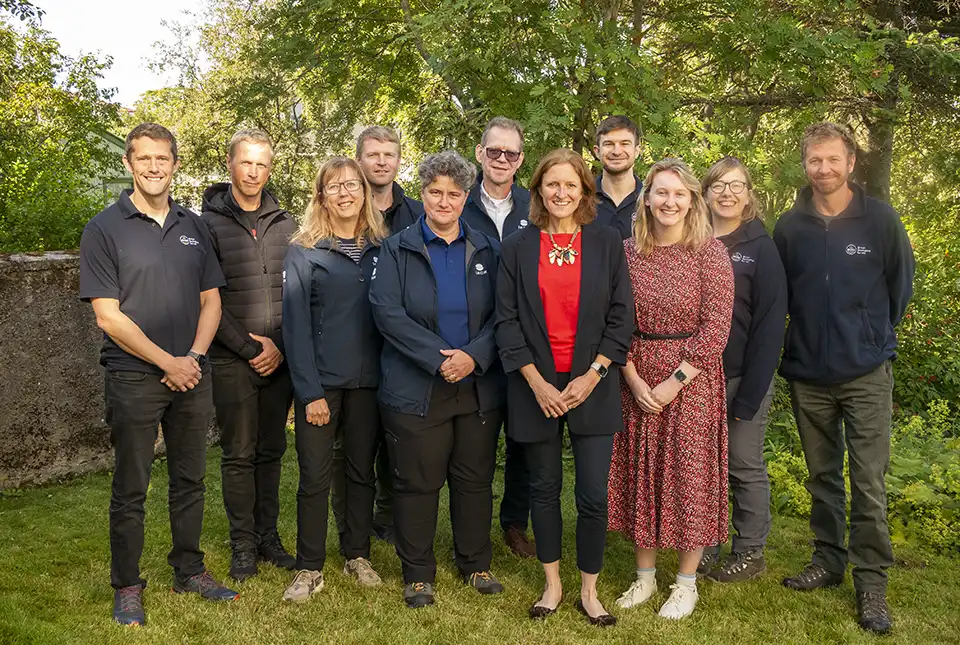
BGS collaborates with Icelandic colleagues to assess windfarm suitability
03/10/2024
Iceland’s offshore geology, geomorphology and climate present all the elements required for renewable energy resources.
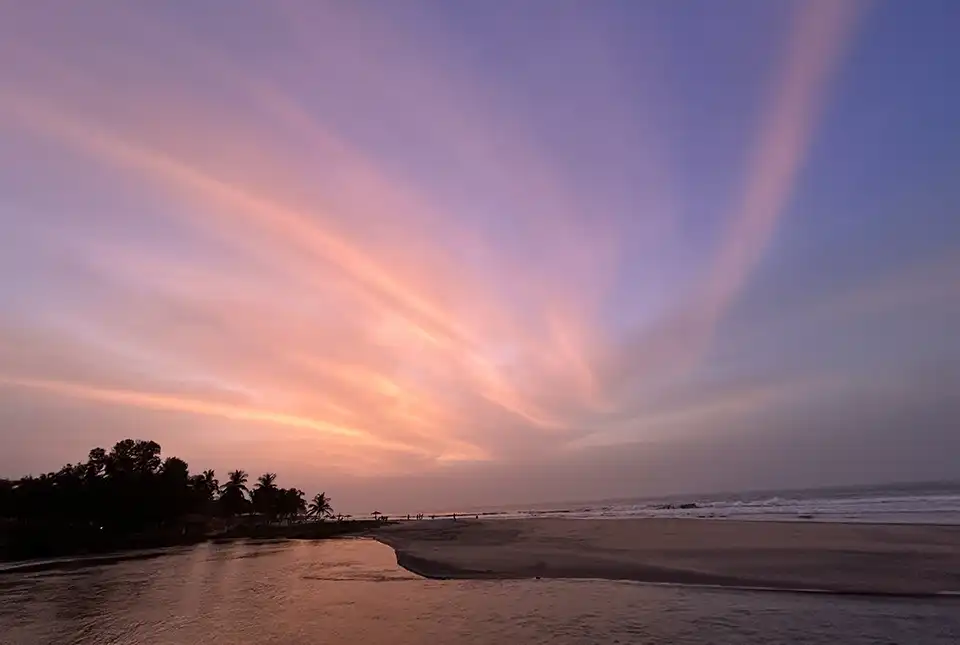
Mining sand sustainably in The Gambia
17/09/2024
BGS geologists Tom Bide and Clive Mitchell travelled to The Gambia as part of our ongoing work aiming to reduce the impact of sand mining.



